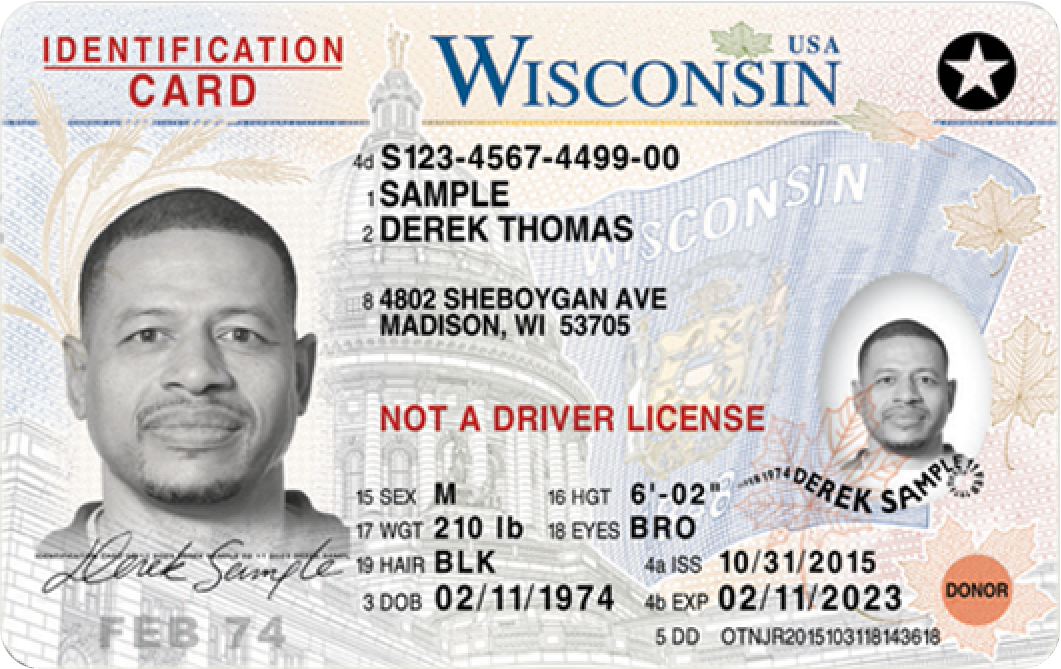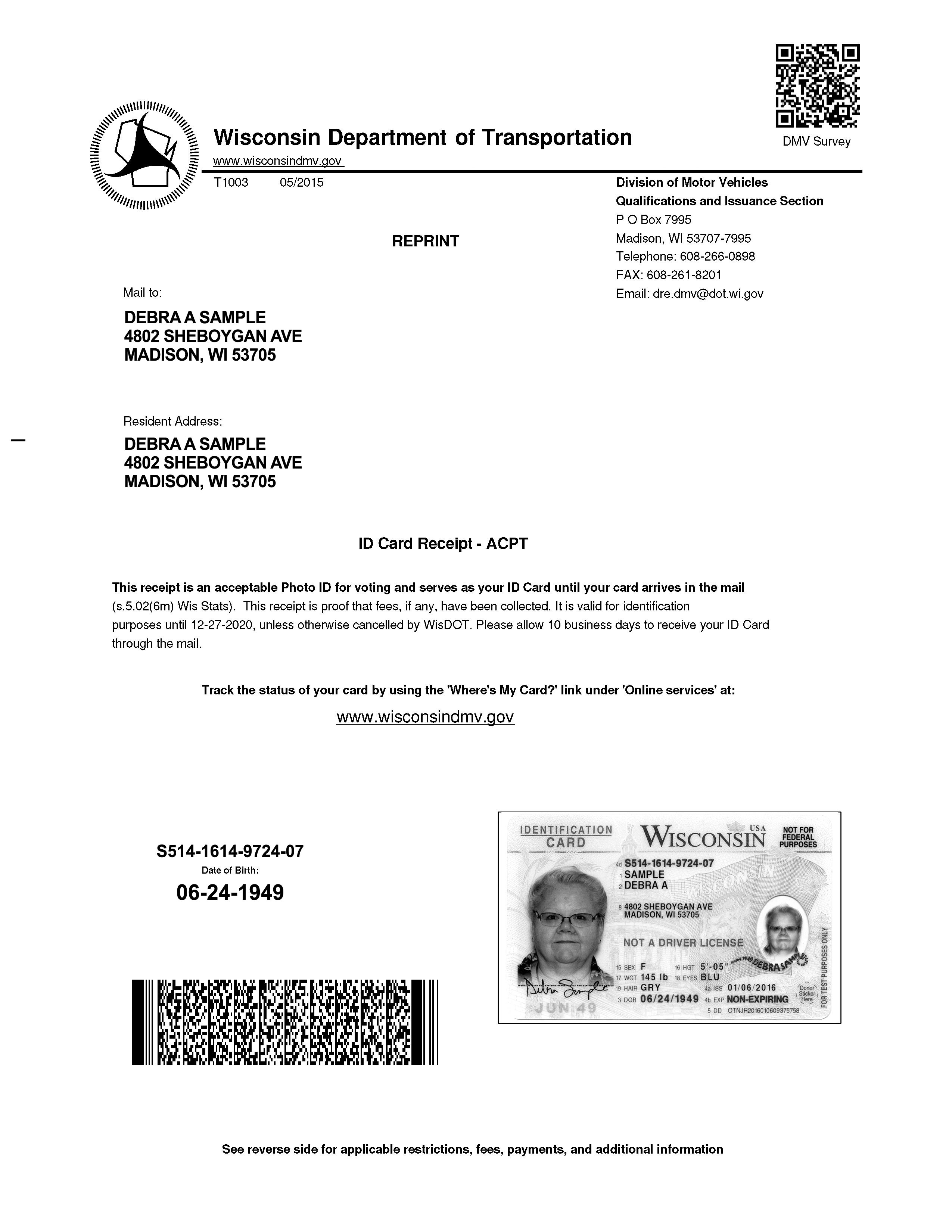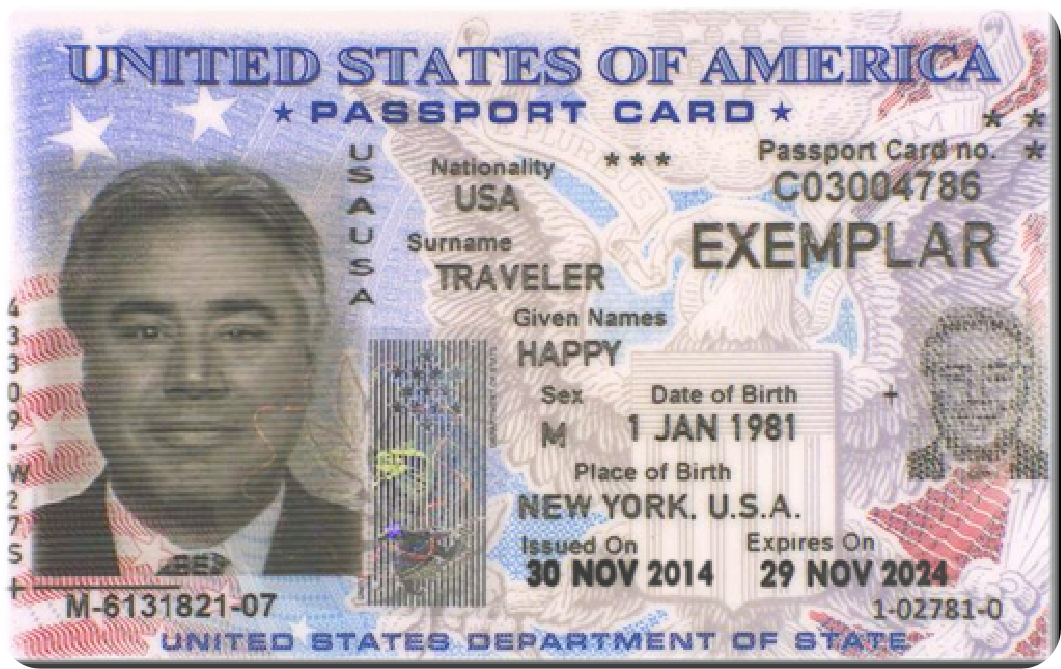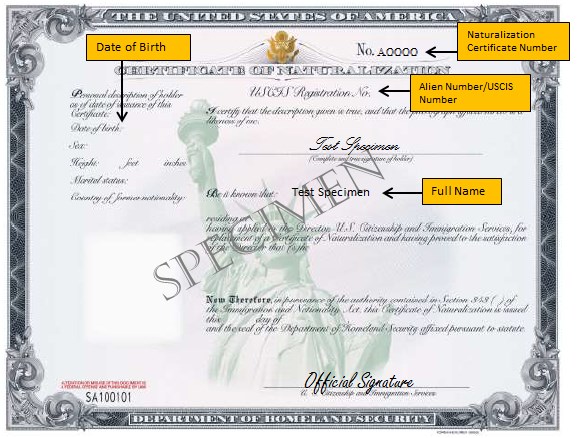Acceptable Photo IDs
There is not a separate “Voter ID” card. There are many forms of photo ID, which you may already have, that can be used to vote. Anyone voting in person must show the original copy of their photo ID.
Anyone with a valid Wisconsin driver license or Wisconsin state ID card, or any of the documents listed below, already has the photo ID they need for voting purpose
The address on your ID doesn’t have to be current. And the name on your ID doesn’t need to be an exact match for your name in the poll book. (So, Richards who go by Rich, Bobs who are also Roberts and Susans with IDs for Sue can still show their acceptable photo ID and receive a ballot.)
Acceptable IDS
Most people already have the photo ID they need to vote such as a Wisconsin driver license or ID card. If you don’t have one of those or another acceptable photo ID, you can get one for free after just one visit to a Wisconsin Department of Motor Vehicles.
Just bring whatever identifying documents you have like a birth certificate and proof of your current address to obtain a photo ID. If you don’t have those documents you may still obtain a document that you can use for voting through the ID Petition Process at the DMV office.



Getting a free ID for Voting is easy even if you do not have the documentation to get a regular Wisconsin ID!
- Go to the DMV to apply
- Bring the following, if available:
- Proof of Name and Date of Birth
(such as Birth Certificate) - Proof of Identity
(Social Security Card, Medicaid/Medicare Card, etc.) - Wisconsin Residency
(Utility bill, government mail, lease, etc.) - Proof of U.S. Citizenship
(U.S. Birth certificate or citizenship paperwork) - Social Security Number
- Proof of Name and Date of Birth



If you don't have all or any of these, you can still get an ID for voting. Just bring what you have to the DMV, fill out two forms (form MV3004, and form MV3012), and you will get a photo ID document in the mail that you can use in time for voting. Here is a sample of the document you'll be receiving.
Call the DMV voter ID hotline if you need assistance: (844) 588-1069
If you already hold an unexpired Wisconsin driver license or identification (ID) card, or if you hold a Wisconsin driver license or ID card that has expired since the last general election (currently November 8, 2022), you have what you need to vote. A Wisconsin driver license or ID card is acceptable photo ID for voting.
Questions? Contact Wisconsin DMV email service
Call: (608) 266-1069
Voter ID hotline: (844) 588-1069
You can even vote with a receipt issued by the Division of Motor Vehicles if your new driver license or state ID card doesn’t arrive in the mail by Election Day.


U.S. Passport books and cards are documents issued by the U.S. Department of State to citizens of the United States of America. This document is used for international travel and identification.
Both U.S. Passport books and cards can be used to vote. The look of a U.S. Passport can vary depending on when your passport was issued.
You may still use your expired U.S. Passport for voting as long as it has expired since the last General Election.


A Veteran ID card or a U.S. Uniformed Service ID card can be used to vote in Wisconsin.
There are currently two versions: the Veteran Health ID Card (VHIC) and the older Veteran ID Card (VIC). These are issued by the U.S. Department of Veteran Affairs/Veterans Health Administration to veterans who are enrolled in the VA health care system.
Uniformed Service IDs are issued by the U.S. Department of Defense to members of the U.S. Air Force, U.S. Army, U.S. Coast Guard, U.S. Marine Corps, U.S. Navy, National Oceanic and Atmospheric Administration, U.S. Public Health Services, and spouses or dependents of service members. Retired U.S. Uniformed Service ID cards are acceptable.



- You must show the original copy of your ID if you are voting in-person.
- The ID cards must be unexpired or have no expiration date.
- Some VIC and USID cards do not expire and are therefore valid for voting indefinitely. The newer VHIC card will first begin to expire in 2023.
- You may still use your expired U.S. Uniformed Service ID card for voting as long as it has expired since November 8, 2022 (currently the last General Election).
- Your ID card does NOT need to have a current address on it.
A Tribal ID card that was issued by a federally recognized Native American tribe that resides in Wisconsin can be used for voting. You must show the original copy of your ID if you are voting in-person.
Tribal ID cards can be issued to full members of the tribe only. A full member of the tribe must first be enrolled in order to be considered for full membership. A birth certificate is required for enrollment. The enrollment process can vary between two months to one year depending on each tribe’s process. It is recommended that you contact the specific tribe you are applying to for the most current information on their enrollment process.

- Bad River Band of the Lake Superior Tribe of Chippewa Indians
- Forest County Potawatomi Community
- Ho-Chunk Nation of Wisconsin
- Lac Courte Oreilles Band of Ojibwe
- Lac du Flambeau Band of Lake Superior Chippewa
- Menominee Indian Tribe
- Oneida Tribe of Indians
- Red Cliff Band of Lake Superior Chippewa Indians
- Sokaogon Chippewa Community
- Stockbridge Munsee Community
- St. Croix Chippewa Indians
The U.S. Certificate of Naturalization can be used to vote if it was issued no more than two years prior to the election. If your Certificate of Naturalization was issued more than two years before the election you will need to provide another form of photo ID for voting purposes.
A U.S. Certificate of Naturalization is issued by U.S. Citizenship and Immigration Services (USCIS) to U.S. citizens who have completed the U.S. naturalization process. In Wisconsin, only U.S. citizens are eligible to vote. You may not vote until the U.S. citizenship process is complete.
When applying for a U.S. Certificate of Naturalization you will need to do the following: Complete and submit a N400 Application, send a photocopy of both sides of your Permanent Resident Card, send two identical color photographs (with your name and Alien Registration Number written lightly in pencil on the back of each photo), provide other documents depending on the circumstances*, and pay an applicable fee (a check or money order for the application fee and the biometrics services fee , write your USCIS-number on the back of the check or money order).


A student ID issued by an accredited Wisconsin college, university, or technical college can be used to vote in Wisconsin. This includes all 2 and 4 year colleges, universities and technical colleges in the State of Wisconsin System and accredited, private schools.
However, there is specific information that must be included with your ID in order for it to be acceptable for voting. Your student ID card must include:
- Your name
- Your signature
- Your photo
- Issue and expiration dates
- The issued date cannot be more than two years from the expiration date.
The card may still be used to vote even if it is expired. If your student ID is expired, you must also provide a document that shows you are enrolled in the school at the time of the election. This can be a document such as an enrollment verification letter, class schedule, tuition fee receipt, or certified campus housing list.
You must show your original student ID if you are voting in-person but may show your proof of enrollment document electronically.
